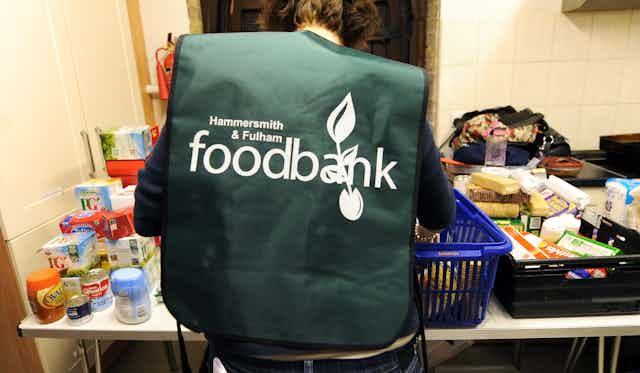Changes to Britain’s social security system which come into force this month will entrench impoverished households in further poverty. The changes mean that in the future there will be an increase in the number of people who are income poor and reliant upon charitable forms of poverty relief such as food banks. Households with children and disabled people who are deemed capable of making efforts to hasten their entry into work will be among the most acutely affected.
Until April 2017, Child Tax Credit (CTC) was paid for each child in a family, provided they were poor enough. From now on, for new claimants, the number of children for whom CTC will be paid will be restricted to just two. Hence, in the assessment of the financial needs of income poor families, subsequent children will not be included. This is an important development because it divorces means-tested social security support from the needs of families.
This measure was announced in the Summer Budget of 2015. The then Chancellor of the Exchequer, George Osborne, argued that it would help to return “fairness” to the social security system as many working families don’t see their budgets rise “when they have more children”. The Treasury noted that:
The government believes that those in receipt of tax credits should face the same financial choices about having children as those supporting themselves solely through work.
The government was arguably influenced by a concern with “benefits broods” (large families in receipt of benefits) – the cultural representation of which is regularly employed by those seeking to dismantle collectively provided benefits.
The restriction of CTC to two children has been widely criticised. Concerns, for example, have been expressed that women who have a child as the consequence of rape will have to declare this in order to receive payments for their third child. In addition, and unsurprisingly given that the measure will cost families £2,780 per annum for each child above the two, the Institute for Fiscal Studies estimates an additional 200,000 children living in poverty by 2020 because of the two child benefit limit.

Disability benefits
The 2015 Summer Budget also announced cuts to benefits for chronically sick and disabled people. New claimants of Employment and Support Allowance (ESA) who are deemed to be capable of engaging in work-related activity to hasten their reentry into paid work will receive a benefit that is £29.05 (28 per cent) per week lower than a person receiving it before April 2017.
George Osborne argued that this slashing of benefits was necessary in order to encourage disabled people into paid employment. Between 2010 and 2015 the number of ESA claimants had fallen by a much lower number (90,000) than the fall in Jobseeker’s Allowance claimants (700,000). This convinced Osborne that ESA incentivised disabled people to remain on benefits. The main problem with this analysis is that it ignores the discrimination and other barriers that disabled people face in accessing paid work.
Understanding the benefit changes
In his budget speech, Osborne said that the government’s intention was to shift Britain “from a low wage, high tax, high welfare economy; to the higher wage, lower tax, lower welfare country”. The social security changes outlined here certainly help to shift Britain to a “lower welfare country”. It is estimated that the two combined cuts will save £2.005 billion per annum by 2020/21.
Increases in the national minimum wage were also announced. But research demonstrates that these will not offset the benefit cuts. Increased wages only help those people in work (which, by definition, recipients of ESA are not). And they are of less value to low wage families, as CTC recipients are likely to be, because increases in wages reduce means-tested benefits (including CTC) paid to households in low paid work.
The changes are driven by a classic liberal belief that the state should provide as little as possible for the fewest people possible on “less eligible” terms, otherwise it risks eroding self sufficiency and self control. The cuts reflect and help popularise the idea that social security benefits encourage recipients to reject paid work in favour of a life “on benefits”. While the cuts to CTC are premised upon the idea that benefits incentivise families to have children they cannot afford. These views have been central to poor relief and social security policy for hundreds of years, even during the “golden era” of the post-World War II welfare state.
The central notion in this anti-benefits argument is the idea that people will only work and refrain from having children through enforced poverty. But the fact is that the government is to make massive savings by delving into the pockets of the poorest people in Britain. These changes will increase hunger in families and entrench the use of food banks in the UK. Increased participation in paid work and smaller families is the aim, but more poverty and hunger will be the result.

